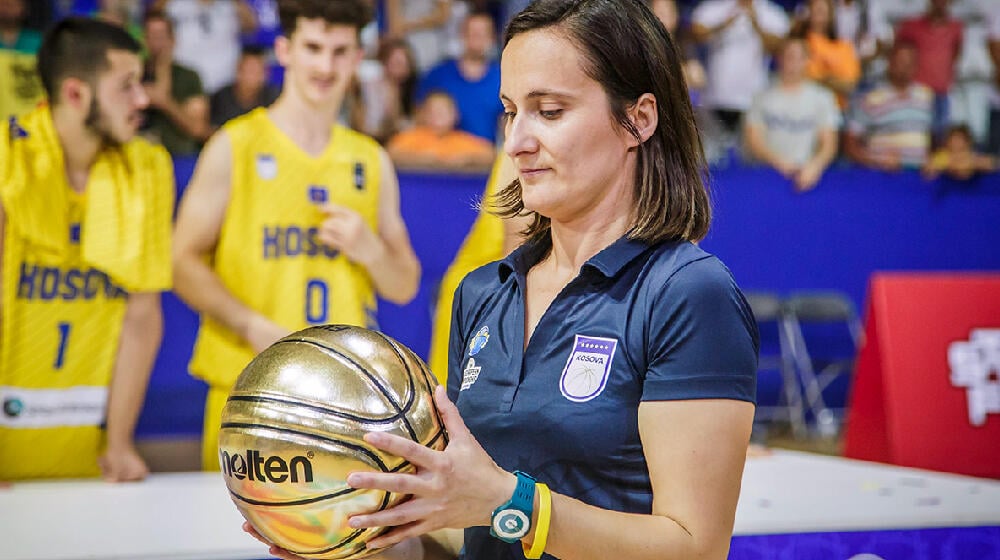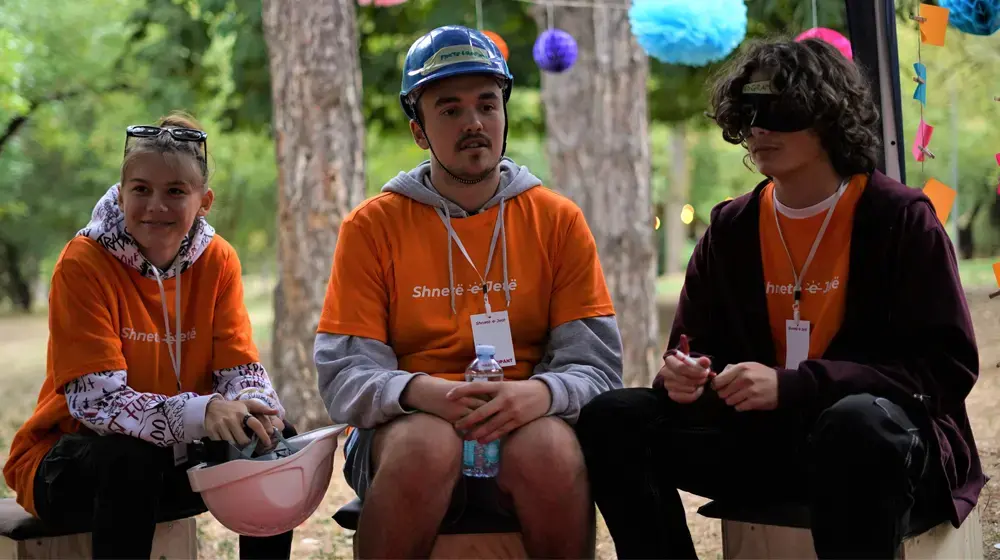Qëndresa Krelani found herself at the centre of heated public debate back in 2021.
A sports journalist with two decades of experience, Krelani was part of a panel on Sporti Total, a KTV sports show alongside Llapi Football Club's coach Tahir Batatina, Drenica Football Club's former coach Bekim Shotani and commentator Erdin Hashani. The panel was discussing match-ups in Kosovo's First Football League when Krelani criticized Batatina, saying that supporters had lost faith in him as a coach.
Batatina responded, "Ninety-nine per cent if I was your manager, I would only allow you to fold newspapers because you have no knowledge about football," before adding, "You are not on the level of a journalist, this is evident from your appearance."
Batatina's sexist language drew a sharp response. The Association of Journalists of Kosovo reacted by asking the Football Federation of Kosovo to take measures against Batatina, who was also condemned by the Association of Sports Journalists. The Disciplinary Committee of the Football Federation of Kosovo also started proceedings against the coach.
But on social media there was a wave of similar comments to Batatina's, showing that there is still widespread resistance to women working in the traditionally male-dominated field of sports journalism, among other challenges women in journalism face.
This resistance is being challenged by a number of women. One example is Elvira Dushku, former basketball player, sports journalist and now General Secretary of the Basketball Federation of Kosovo. And a sign of change in the next generation: women make up the majority of the students in the University of Pristina's sports journalism course.
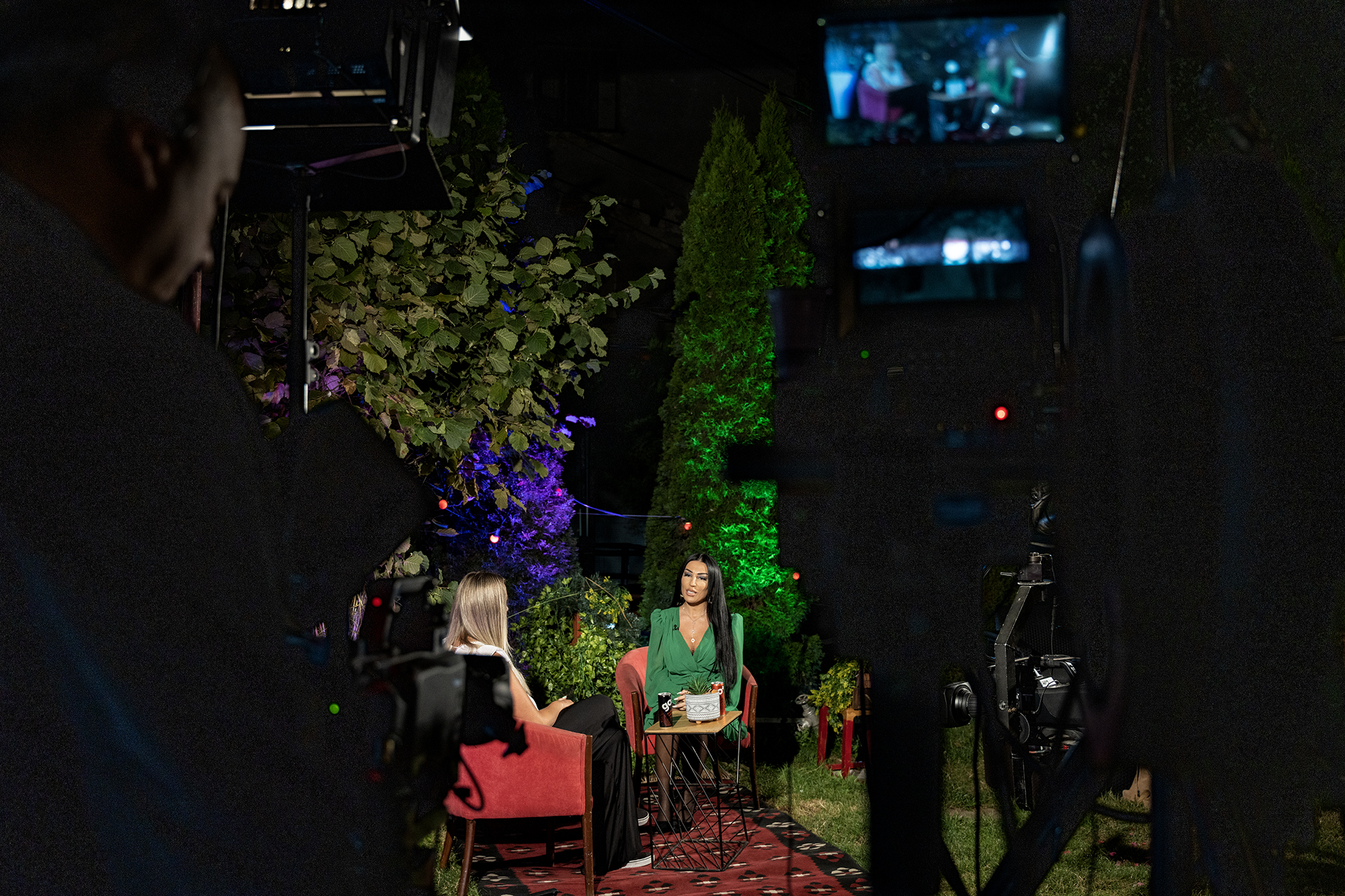
Not just a profession
The daughter of Fatlik Krelani, a famous Yugoslav-era footballer who played for the Vëllaznimi and Flamurtari clubs, Qëndresa Krelani, known as Qeqa, grew up in stadiums surrounded by football. She knew from childhood that she wanted to be a sports journalist and started when she was just 16. She was among the first women sports journalists in Kosovo.
Her father encouraged her to pursue the career.
"Dad saw my fighting character, because a parent knows you better than anyone, and he saw my courage," said Krelani. "I was just a child when he told me 'You need to become a football journalist.'"
In 2000, immediately after the war, she began working as a journalist for Radio Television of Kosovo (RTK) while she was still a teenager. As a result of the devastation of the war, journalists were working without salaries, contracts or legal protection.
Krelani remembers this as one of the most challenging times in her life. She had to commute from Gjakova/Đakovica to Pristina and was often forced to sleep in the editorial office. She remembers that her colleagues and managers often ignored her, which she thinks happened because she was one of the only women in the field.
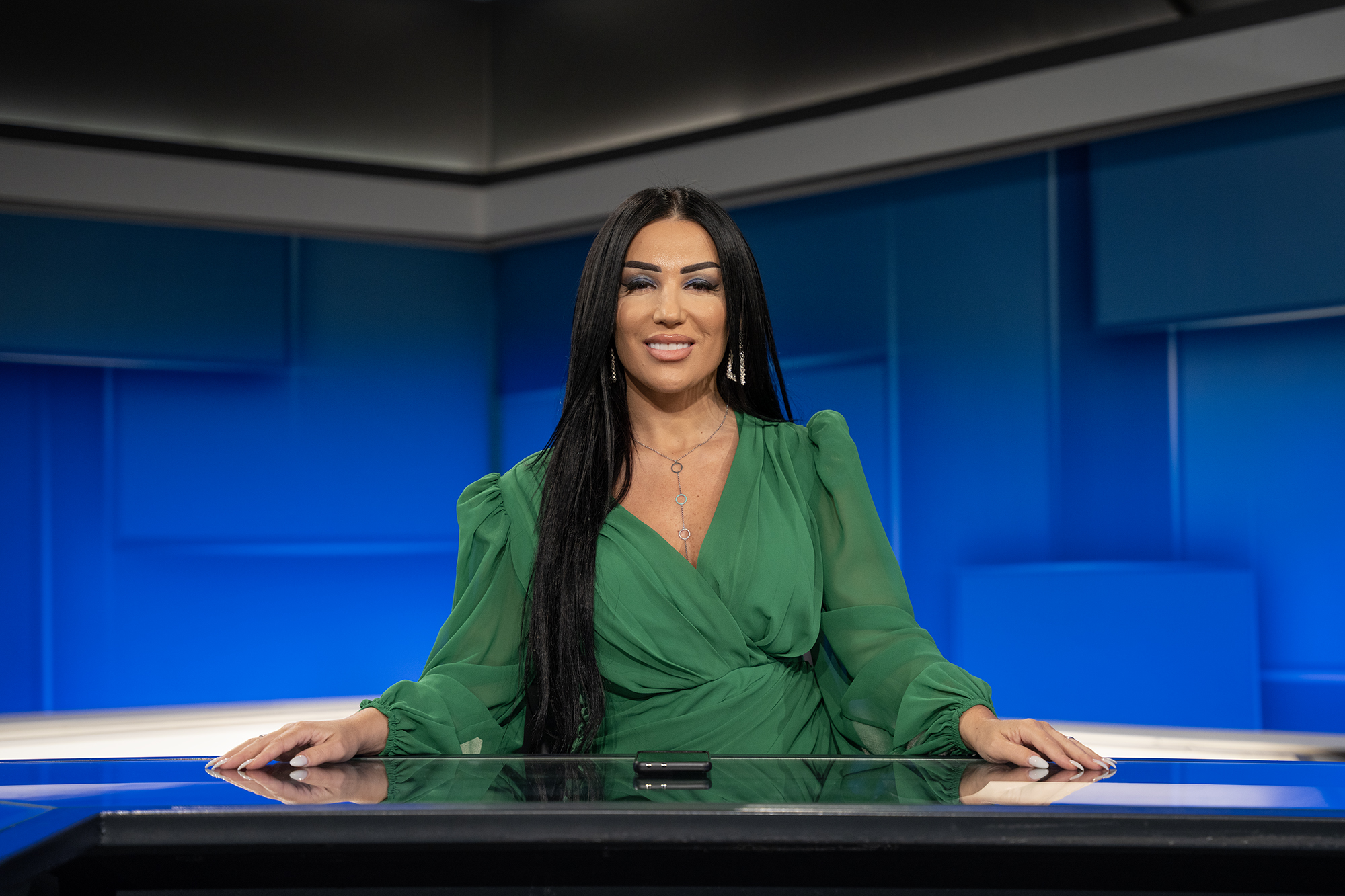
"Looking at it now, from this perspective, I don't know how I managed to continue," she said. "When I think of the many sacrifices, I wonder what made me continue and never give up. If you ask me now, I’m not sure."
Krelani attributes the lack of visibility of women in sports journalism to male-led newsrooms. According to her, women are usually only used for aesthetics, to benefit a certain project, or to be a token member of a team. When she speaks publicly about the insults and hate speech she receives, she has been called "controversial" and "problematic."
The lack of women in sports journalism is also evident in Elvira Dushku’s story, who was among the first cohort of Kosovar women sports journalists.
A former basketball player, Dushku started working as a journalist for the Bota Sot newspaper in 2004. Although she only stayed there for a few months, she remembers that the transition from athlete to journalist was difficult. Dushku started playing for the Pristina Basketball Club in the mid-90s where she stayed until 2007. Having been one of the most popular basketball players in Kosovo, she left her sport behind and started working in an office with five men.
The lack of physical activity made this transition difficult for Dushku and she started to doubt whether she should be a journalist or become a coach. Salaries at the time were low and there was a lack of educational opportunities for advancement. In 2007, Dushku overcame her doubts and transitioned into a full-time career as a sports journalist, where she stayed for 10 years.

Bardh Rugova, a lecturer in sports journalism at the University of Pristina's Journalism Department, is happy there are women sports journalists. He sees progress over the last 20 years, despite it being slower than in other professional fields.
Through his sports journalism course, Rugova aims to provide students with basic knowledge about the sector and to enable them to gather information and write sports articles. Sports journalism, as Rugova sees it, is often underestimated. He tries to emphasize to his students that just because sports journalism is entertainment, that does not mean that it should not be objective and professional. He laments that in Kosovo, sports journalists often function more like fans.
Rugova finds the ongoing sexist language directed at women in this field disturbing. He said there has long been a mindset that "since the audience is dominated by men, let’s use male-centric language,'' or "look, she's on television and so I have the right to say anything to her." He added that men tell women who try to be involved in sports to "go play with dolls, go watch telenovelas, sport belongs to us."
Rugova and Dushku both commented that a persistent problem is the objectification of women sports journalists.
"I appreciate it when a female moderator asks me a question," said Dushku. "In Kosovo, football is still considered only for men, and so [people think] Qëndresa should not comment on football, or any other woman."
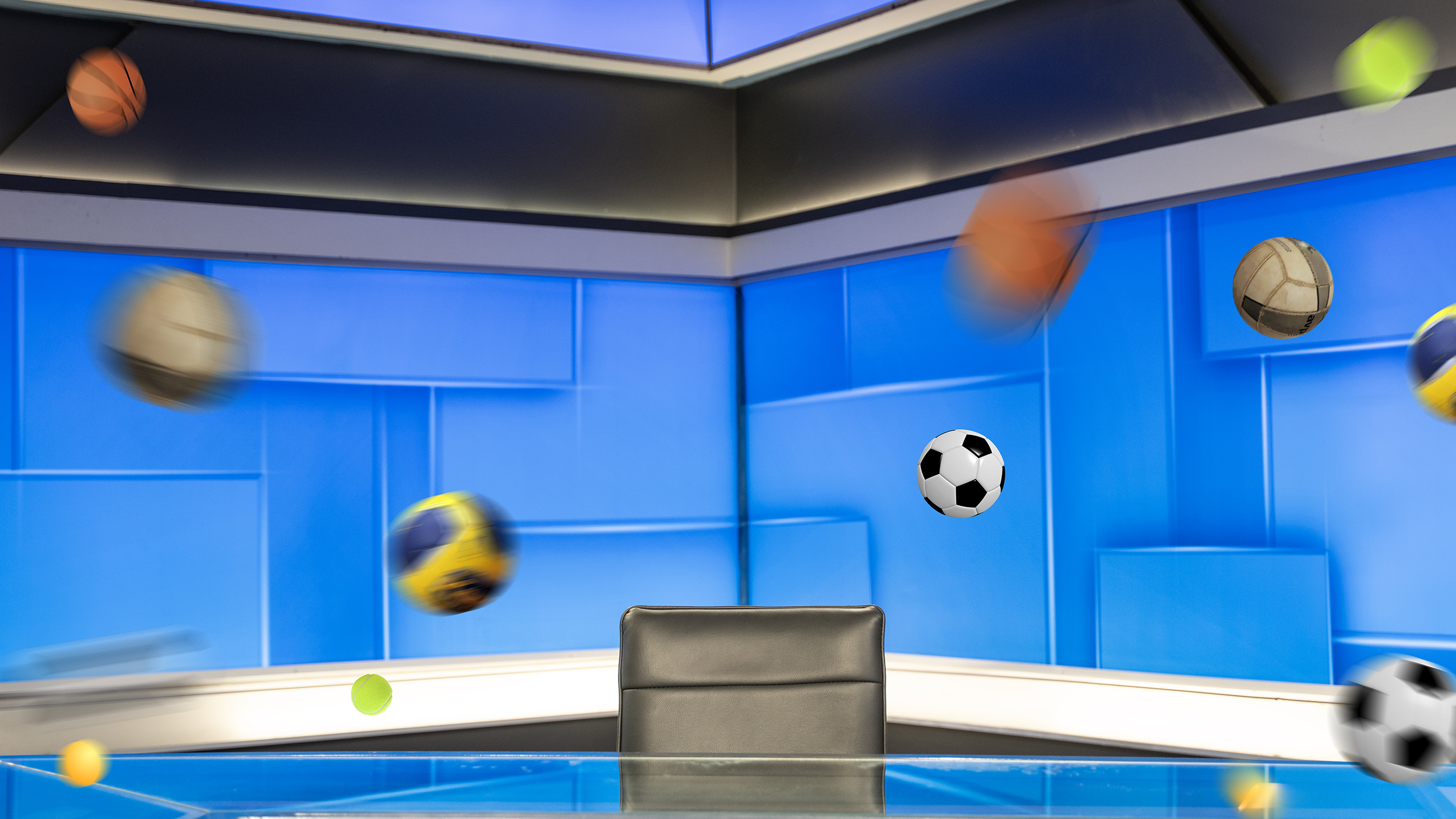
Dushku said that the prejudices were even more prevalent during her time as a journalist than they are now.
"At that time, they thought that only men should cover sports events, that only men should go out on the ground, that only men should cover the Champions League and that only men can stay up until 12 a.m.," said Dushku. "I overcame these prejudices and I believe that consequently other girls have found sports journalism more accessible."
She calls on newsrooms and sports associations to include more women on their panel shows and that one way to tackle this would be to put more women in leadership roles in the industry.
Fatjona Rudi is a young journalist working at Kosovo 2.0 as part of the Young Journalists programme, implemented in Kosovo by UNFPA and UNDP. The programme is part of the joint-UN regional initiative "Youth 4 Inclusion, Equality & Trust" supported by the United Nations Peacebuilding Fund.
Story by: Fatjona Rudi
Photos by: Majlinda Hoxha and Enis Mustafa
This article was originally produced for and published by Kosovo 2.0. It has been re-published here with permission.

